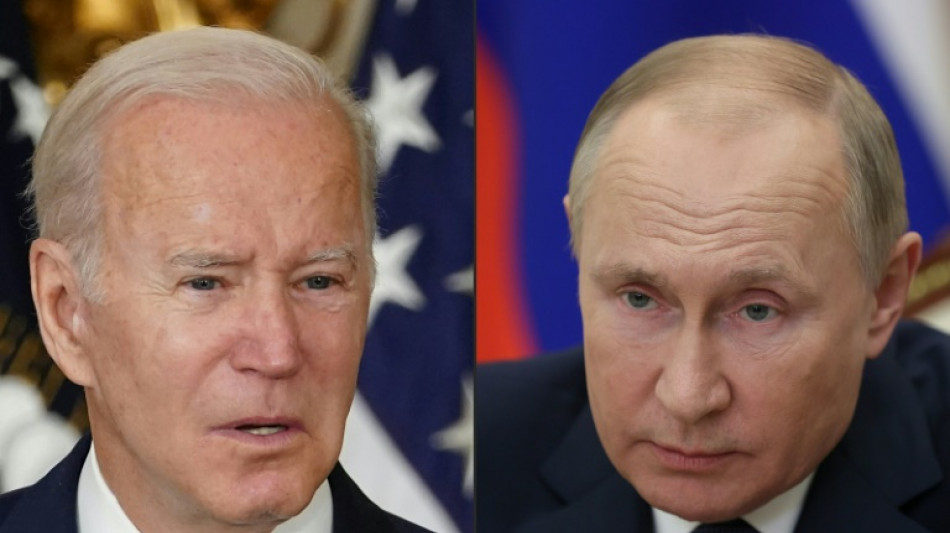

US cautious on whether Russian troops to Donbass equals invasion
The United States took a wait-and-see attitude Monday to President Vladimir Putin's order for Russian troops to deploy in separatist areas of Ukraine, saying that talks remain possible "until the tanks roll."
President Joe Biden imposed sanctions on the two Russian-backed areas in eastern Ukraine's Donbass region.
But a senior US official declined to characterize whether Putin's order for Russian armed forces to conduct "peacekeeping" there counts as an invasion, thereby triggering much wider and more severe Western sanctions against Moscow.
"We are going to assess what Russia's done," the official told reporters, stressing that Russian forces have already been deployed covertly in the separatist areas for eight years.
"Russian troops moving into Donbass would not be a new step," he said.
"We'll continue to pursue diplomacy until the tanks roll."
In a speech accusing the West of turning Ukraine into an anti-Russian bastion, Putin said he was granting recognition of independence to the self-declared Donetsk and Lugansk enclaves.
He then tasked Russia with "peacekeeping" in the region, although no detail was given as to what this meant in terms of troop movements.
The Kremlin has for weeks denied plans to attack Ukraine, while at the same time building up an enormous force of troops and heavy weaponry on three sides of the country.
The United States and its multiple Western allies warn that a full Russian invasion of Ukraine would prompt crippling economic sanctions.
Biden signed an executive order to "prohibit new investment, trade, and financing by US persons to, from, or in the so-called DNR and LNR regions of Ukraine," White House Press Secretary Jen Psaki said Monday.
The order will "provide authority to impose sanctions on any person determined to operate in those areas of Ukraine," Psaki said, adding that the measures are separate from wider Western sanctions ready to go "should Russia further invade Ukraine."
The two self-proclaimed republics already have extremely limited dealings with US citizens.
- Making Russia a 'pariah' -
US officials continue to warn that heavy sanctions on Russia could be imposed at any time.
Secretary of State Antony Blinken slammed Russia's recognition of the separatist areas as a sign Putin had no interest in diplomacy.
Blinken said in a statement that recognizing the territories' independence "directly contradicts Russia's claimed commitment to diplomacy, and is a clear attack on Ukraine's sovereignty."
"Russia's decision is yet another example of President Putin's flagrant disrespect for international law and norms," he said, adding in a separate tweet that the United States "will take appropriate steps in coordination with partners."
On Friday, the deputy US national security advisor for international economics, Daleep Singh, warned that the full set of sanctions under preparation would turn Russia into an international "pariah."
Following Putin's speech, the White House said that Biden talked by phone with Ukrainian President Volodymyr Zelensky for 35 minutes to "reaffirm" the US commitment to Ukrainian sovereignty. He also detailed the plan for sanctions.
Biden also spoke for half an hour with two key European allies -- French President Emmanuel Macron and German Chancellor Olaf Scholz, an official said. The three leaders "strongly condemned" Putin's decision and discussed how to coordinate their response.
The White House did not respond immediately to questions about whether there was still any consideration being given to a suggested summit between Biden and Putin.
Blinken and Russian Foreign Minister Sergei Lavrov were scheduled to meet this Thursday to discuss the possible summit.
L.M. Del Campo--ESF




